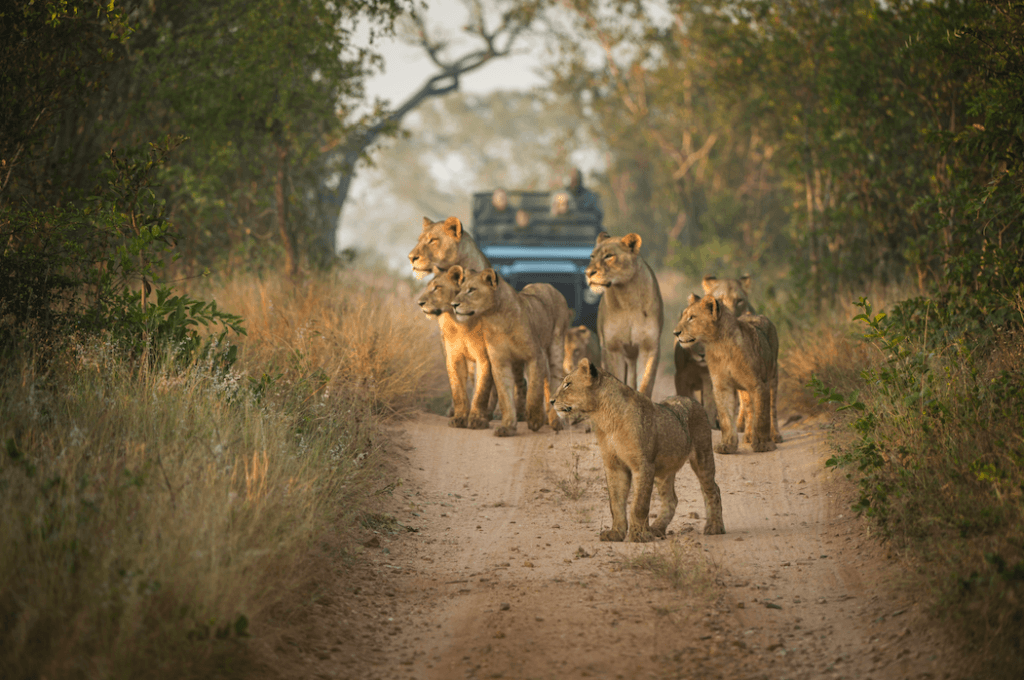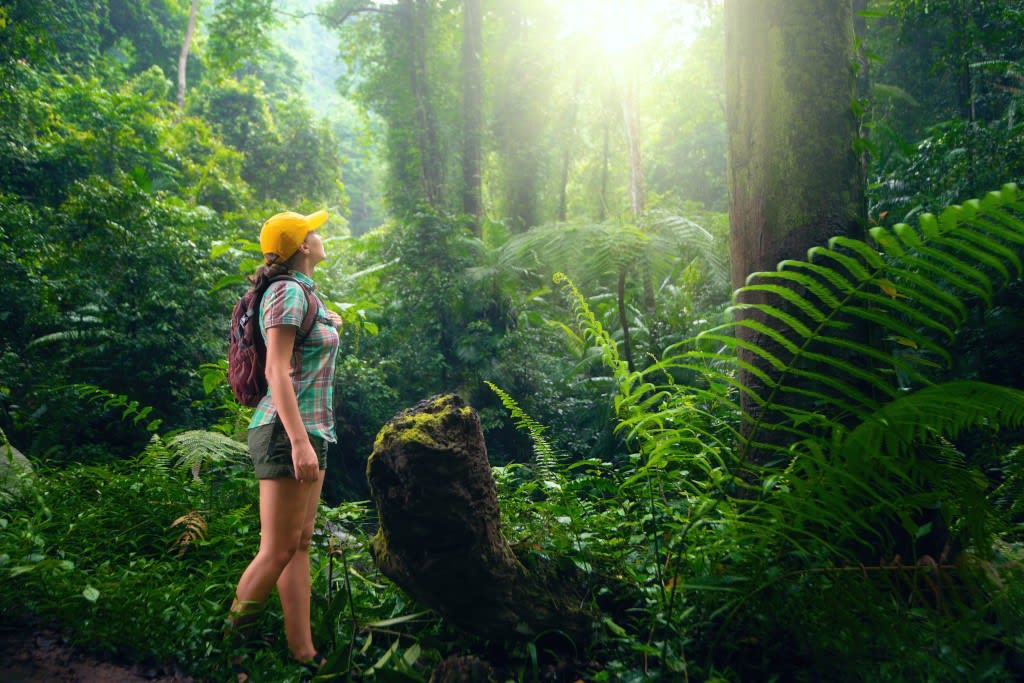In recent years, there has been a growing appreciation for sustainable wildlife encounters within the realm of eco-tourism. These experiences provide travelers with an opportunity to witness breathtaking wildlife up close while actively contributing to conservation efforts. By choosing responsible eco-tourism destinations and engaging with local communities, individuals can play a significant role in preserving our planet’s rich biodiversity.
The significance of eco-tourism in conservation efforts

Eco-tourism acts as a vital tool for conservation by generating income for local communities, creating incentives for the protection of wildlife habitats, and fostering an appreciation for nature. It recognizes the delicate balance between human activities and the environment, ensuring that tourism activities have minimal impact on the ecosystem.
Choosing responsible eco-tourism destinations
When planning a sustainable wildlife encounter, it is crucial to select destinations that prioritize conservation and community involvement. Look for certifications such as the Global Sustainable Tourism Council (GSTC) or partnerships with reputable conservation organizations. These destinations often implement strict guidelines to protect wildlife and natural habitats.
Engaging with local communities and conservation projects

To maximize the impact of your eco-tourism experience, actively engage with local communities and conservation projects. By supporting local initiatives, you contribute to the economic well-being of these communities while directly contributing to wildlife conservation efforts. Engage in volunteering opportunities, visit local schools or cultural centers, and learn about the challenges faced by these communities.
The benefits of sustainable wildlife encounters

Sustainable wildlife encounters offer a myriad of benefits. Not only do they provide unforgettable experiences for travelers, but they also contribute to scientific research, conservation efforts, and the overall protection of endangered species. These encounters foster a deeper connection with nature, allowing individuals to appreciate the intricate beauty and importance of wildlife.
Ensuring ethical wildlife interactions

Ethical wildlife interactions are paramount in eco-tourism. It is crucial to choose experiences that prioritize the well-being and freedom of animals. Avoid activities that involve physical contact, exploitation, or disruption of natural behaviors. Respect the animals’ space and observe them from a safe distance, allowing them to thrive in their natural habitat.
Wildlife photography in eco-tourism

Photography plays a significant role in eco-tourism, enabling individuals to capture and share the beauty of wildlife. However, it is important to practice responsible wildlife photography. Respect the animals’ boundaries, use a zoom lens to maintain a safe distance, and refrain from using flash photography, as it can disturb and stress the animals.
Sustainable accommodation options

When embarking on an eco-tourism adventure, choose accommodations that align with sustainable practices. Look for eco-lodges or eco-friendly hotels that prioritize energy efficiency, waste management, and support local communities. These accommodations often provide immersive experiences, such as guided nature walks or educational programs, to enhance your understanding of the surrounding environment.
Promoting education and awareness

Education and awareness are key to fostering sustainable wildlife encounters. Many eco-tourism destinations offer educational programs and guided tours led by experienced naturalists. These experiences provide valuable insights into the local ecosystems, species conservation, and environmental challenges. By participating in these programs, you gain a deeper understanding of the importance of wildlife preservation.
The role of technology in eco-tourism

Technology plays a vital role in enhancing eco-tourism experiences. From virtual reality tours that simulate wildlife encounters to wildlife tracking apps that provide real-time information, technology offers innovative ways to engage with nature responsibly. These advancements contribute to research, conservation efforts, and provide educational resources for travelers.
Examples of successful eco-tourism initiatives

Across the globe, numerous eco-tourism initiatives have made significant strides in wildlife conservation. The Galapagos Islands’ efforts to protect its unique species, the Maasai Mara Conservancies’ community-based conservation model, and Costa Rica’s commitment to sustainable tourism are just a few examples of successful eco-tourism initiatives. These projects showcase the positive outcomes that can be achieved through responsible tourism practices.
Tips for planning your eco-tourism experience

Research destinations and choose those with a strong commitment to sustainability.
Check for certifications and partnerships with reputable conservation organizations.
Engage with local communities and conservation projects during your visit.
Respect wildlife and adhere to ethical guidelines for interactions and photography.
Stay at eco-friendly accommodations that support sustainable practices.
The future of sustainable wildlife encounters

As the importance of conservation and sustainability continues to grow, the future of sustainable wildlife encounters looks promising. With advancements in technology, increased awareness, and collaborative efforts, eco-tourism will play an even more significant role in preserving our planet’s biodiversity. By embracing sustainable practices and supporting responsible tourism, we can ensure that future generations will also have the opportunity to experience the wonders of wildlife.
Assumption
Sustainable wildlife encounters in eco-tourism offer a unique and fulfilling way to experience nature while contributing to its preservation. By choosing responsible destinations, engaging with local communities, and practicing ethical wildlife interactions, travelers can make a positive impact. Through education, awareness, and technological advancements, we can create a sustainable future where wildlife thrives alongside responsible tourism.
|FAQs|
Are sustainable wildlife encounters more expensive than traditional tourism?
Sustainable wildlife encounters can vary in price, but they are often comparable to traditional tourism experiences. The cost may depend on factors such as the destination, accommodation, and activities included in the package. However, the value gained from supporting conservation efforts and experiencing unique wildlife encounters makes it a worthwhile investment.
Can I participate in wildlife conservation projects during my eco-tourism experience?
Yes, many eco-tourism destinations offer opportunities to participate in wildlife conservation projects. These projects can involve activities such as monitoring and research, habitat restoration, and community engagement. By getting involved, you can actively contribute to conservation efforts and gain a deeper understanding of the challenges faced by wildlife.
Is it safe to engage in wildlife encounters during eco-tourism?
Responsible eco-tourism destinations prioritize the safety of both travelers and wildlife. They adhere to strict guidelines and regulations to ensure that interactions with wildlife are conducted in a safe and respectful manner. Always follow the instructions provided by guides and experts to maintain a safe distance and minimize any potential risks.
How can eco-tourism benefit local communities?
Eco-tourism can bring numerous benefits to local communities. It generates income and employment opportunities, supporting the local economy. Additionally, it often encourages the preservation of traditional cultures and practices, leading to cultural enrichment. By engaging with local communities, travelers can learn from their knowledge and contribute to their sustainable development.
What should I do if I witness unethical wildlife interactions during my eco-tourism experience?
If you witness unethical wildlife interactions, it is important to report them to the appropriate authorities or tour operators. Document any evidence, such as photographs or videos, that can support your report. By taking action, you can contribute to the protection of wildlife and help ensure that responsible practices are upheld.

